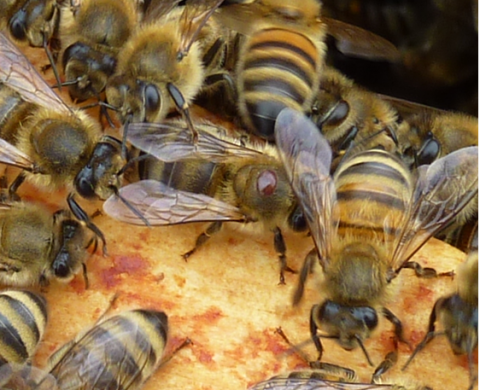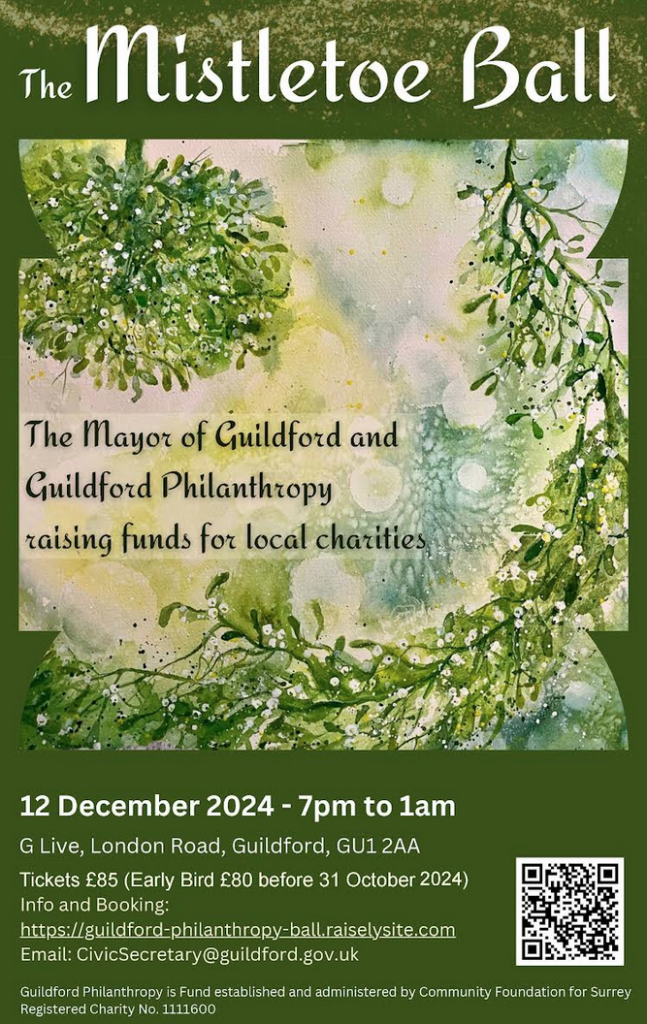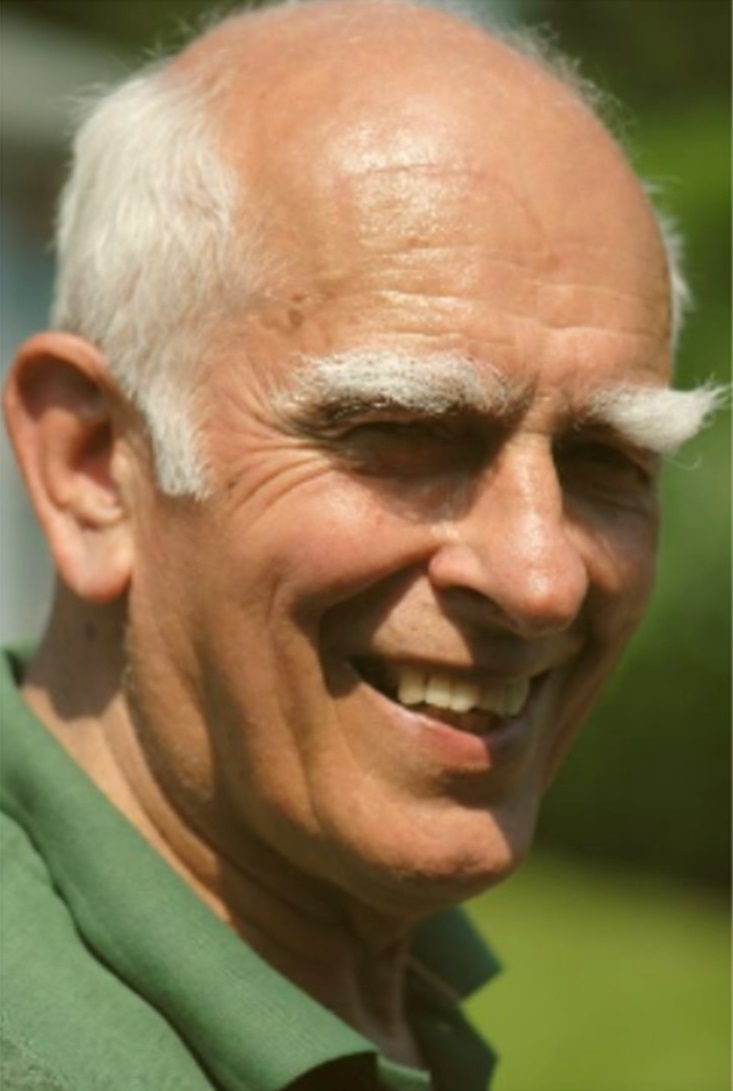 Abraham Lincoln
If given the truth, the people can be depended upon to meet any national crisis...
Abraham Lincoln
If given the truth, the people can be depended upon to meet any national crisis...
 Guildford news...
for Guildford people, brought to you by Guildford reporters - Guildford's own news service
Guildford news...
for Guildford people, brought to you by Guildford reporters - Guildford's own news service
Beekeeper’s Notes: Thoughts On Varroa Treatment And Of An Extraordinary Man
Published on: 1 Jan, 2022
Updated on: 31 Dec, 2021
Hugh Coakley keeps bees in Worplesdon
It is the time of year for varroa treatment again.
Varroa, a tiny mite which lives off honeybee adults and larvae, arrived in the UK in the 1990s, killing huge numbers of colonies by weakening their resistance to common ailments and pests in the hive. The impact is hard to detect quickly because the colony looks ok but it just doesn’t thrive and it fades out over a year or so.

The red shiny oval shape is a varroa mite latched onto the back of a bee in one of my colonies (photograhed in 2015).
Subsequent anti-varroa treatments have worked well and kept on top of varroa. But people question whether we should be treating bees saying that, if left to their own devices, the bees will evolve a mechanism to live with the dreaded mite.
See Beekeepers Notes: We Must Go Chemical Free “If Not Now Then When?”
And there is some evidence of colonies becoming varroa resistant. But do I risk losing my four colonies by not treating them, as Guildford Beekeepers chairman, Jonathan Brookhouse, has done or do I continue to treat?
I think I will continue to use what has now become a standard method of varroa mitigation as it is the easiest path. But I’m uneasy and wish I was braver.
On a sad note, a great gentleman in Guildford’s beekeeping history died recently. He opened Blackhorse Apiary in 2000 and taught hundreds of Guildford and Surrey beekeepers over the years.
People flocked to his courses for his great knowledge, his welcome and encouragement.
He held 10-week theory courses in the winter followed by a further 10-week practicals in the spring. You finished the course proudly with a colony of your own from John’s own breeding stock, a typically practical approach to supporting beekeeping in the area.
He was an extraordinary and inspirational man, giving his time and expertise with such generosity. People wanted to work with him and he attracted a loyal group of volunteers who helped him with the apiary and the courses.
He was quietly outspoken but I don’t think I have ever heard a bad word spoken about him, a testament indeed.
He will be truly missed.

"Found any?" - "Nope, it all looks green to me!" (See Opinion: The Future is Congested, the Future is Grey)
www.abbotshospital.org/news/">





Recent Articles
- Latest Evidence in Sara Sharif Trial
- Ash’s New Road Bridge Is Named – and November 23rd Is Opening Day
- Class A in Underwear Leads to Jail Sentence
- Historical Almshouse Charity Celebrates Guildford in Bloom Victory
- Notice: Shalford Renewable Showcase – November 16
- Firework Fiesta: Guildford Lions Club Announces Extra Attractions
- Come and Meet the Flower Fairies at Watts Gallery
- Updated: Royal Mail Public Counter in Woodbridge Meadows to Close, Says Staff Member
- Letter: New Developments Should Benefit Local People
- Open Letter to Jeremy Hunt, MP: Ash’s Healthcare Concerns


Search in Site
Media Gallery
Dragon Interview: Local Artist Leaves Her Mark At One of England’s Most Historic Buildings
January 21, 2023 / No Comment / Read MoreDragon Interview: Lib Dem Planning Chair: ‘Current Policy Doesn’t Work for Local People’
January 19, 2023 / No Comment / Read MoreA3 Tunnel in Guildford ‘Necessary’ for New Homes, Says Guildford’s MP
January 10, 2023 / No Comment / Read More‘Madness’ for London Road Scheme to Go Ahead Against ‘Huge Opposition’, Says SCC Leader
January 6, 2023 / No Comment / Read MoreCouncillor’s Son Starts Campaign for More Consultation on North Street Plan
December 30, 2022 / No Comment / Read MoreCounty Council Climbs Down Over London Road Works – Further ‘Engagement’ Period Announced
December 14, 2022 / No Comment / Read MoreDragon Interview: GBC Reaction to the Government’s Expected Decision to Relax Housing Targets
December 7, 2022 / No Comment / Read MoreHow Can Our Town Centre Businesses Recover? Watch the Shop Front Debate
May 18, 2020 / No Comment / Read More








Recent Comments